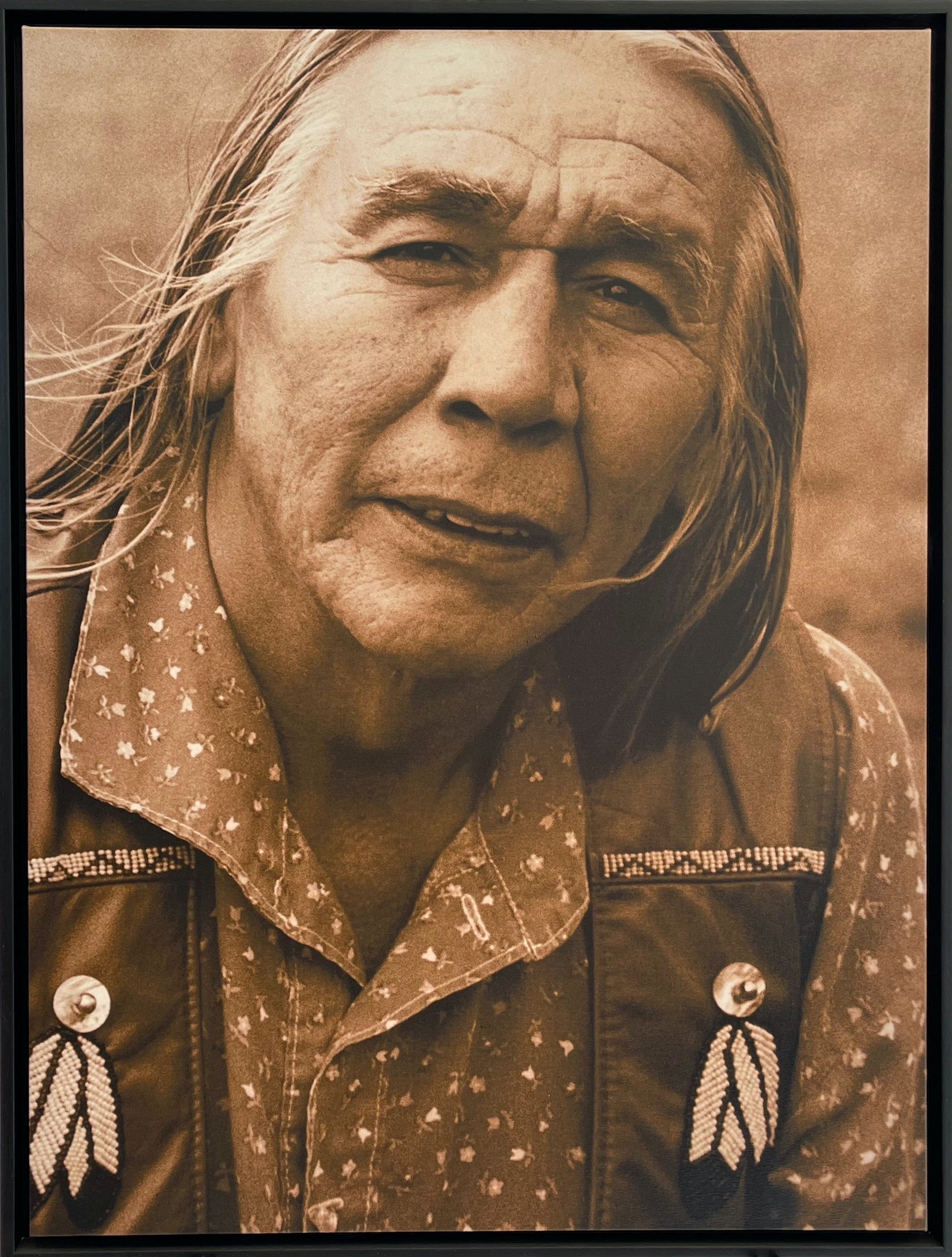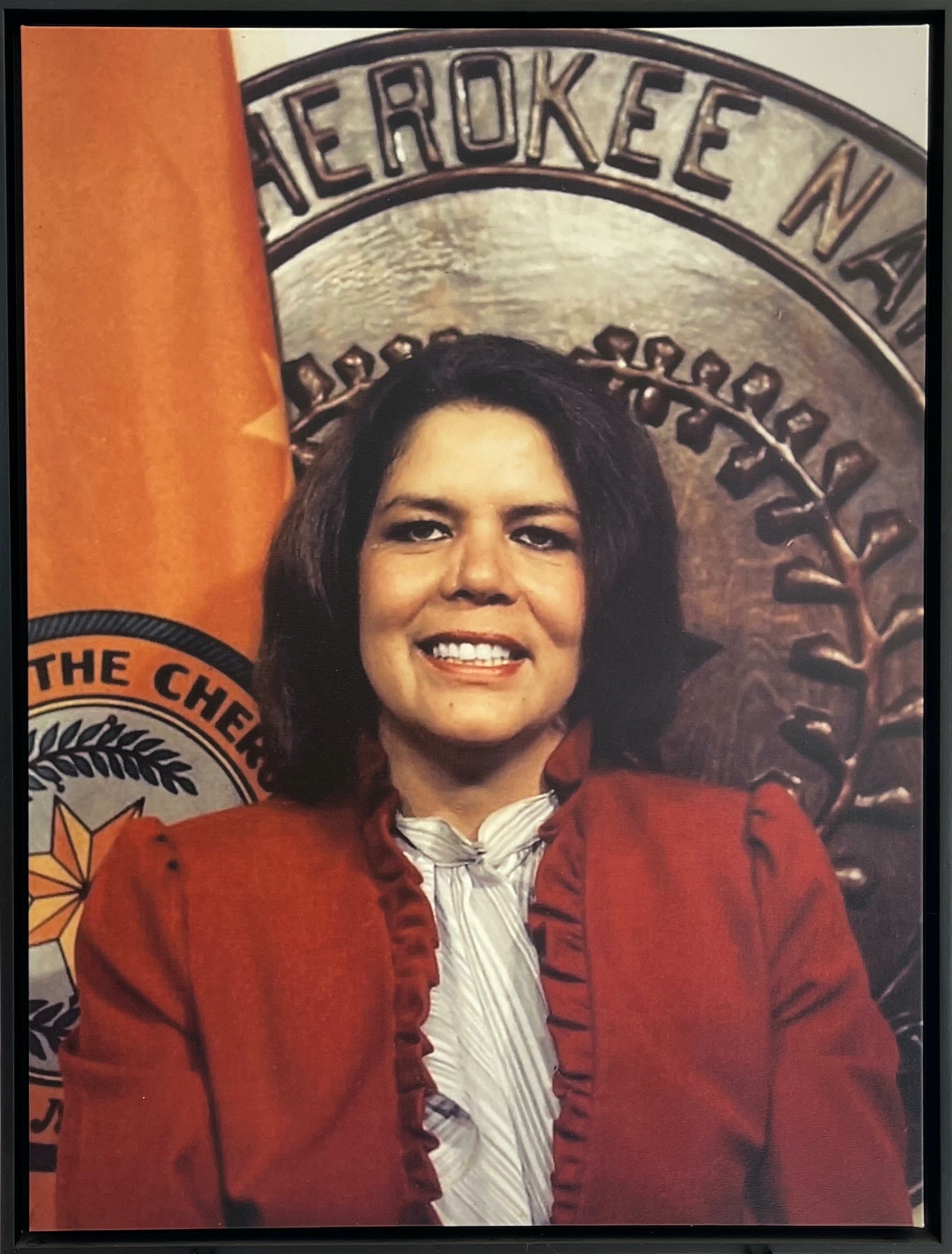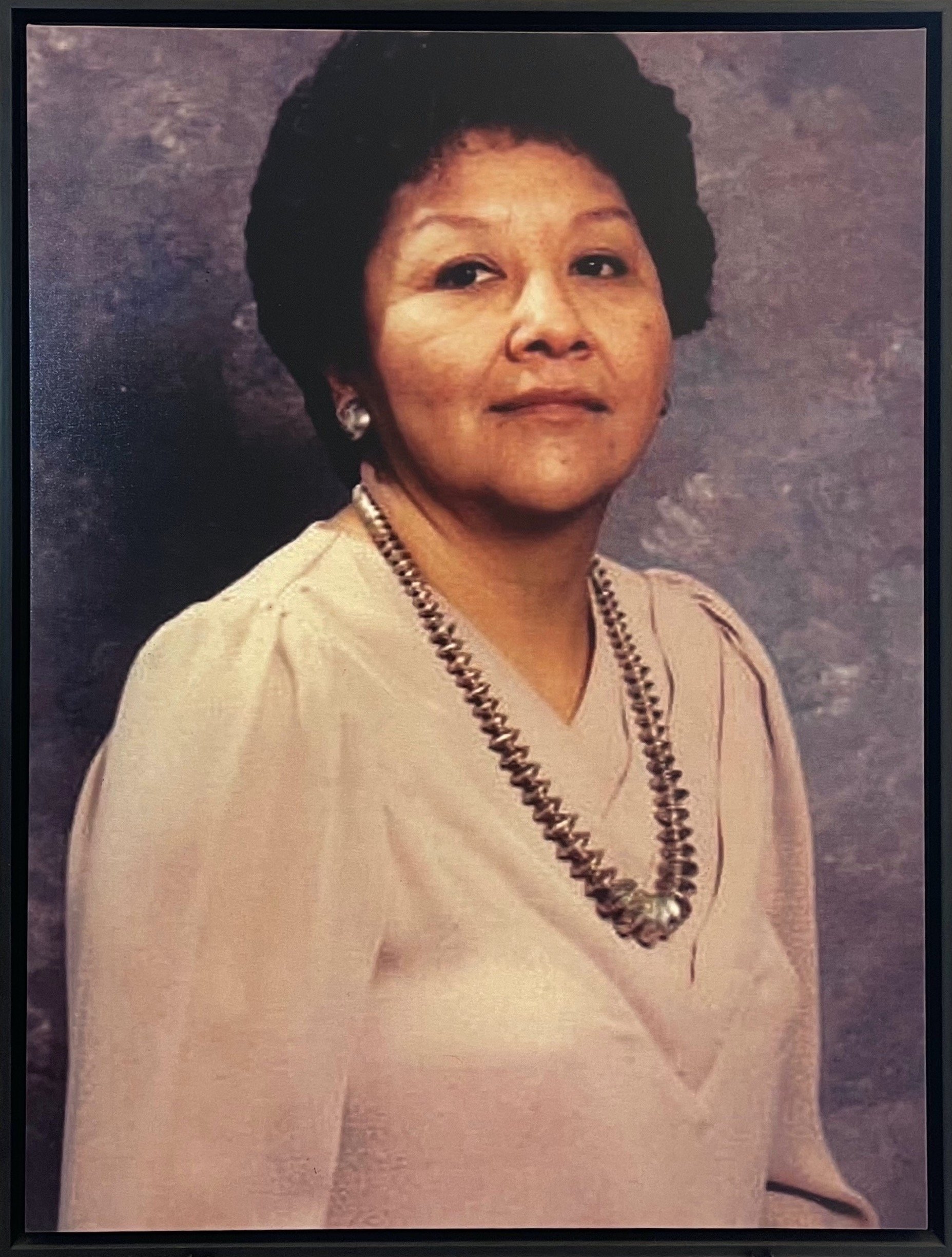IFH Wall of Heroes
Floyd Westerman (Sisseton-Wahpeton Dakota Sioux)
Floyd Westerman was born at Sisseton-Wahpeton Dakota Sioux reservation in 1936. His Indian name is “Kanghi Duta” (Red Crow). When he was 10 years old, he was sent to a boarding school 80 miles off the reservation where his hair was cut and was forbidden to speak his language. His experience at boarding school profoundly impacted him and as an adult, he became an advocate for Indigenous cultural preservation. Westerman continued onto high school, joined the Marines for two years and then graduated Northern State College in South Dakota with a degree in secondary education. He was an active member in the American Indian Movement which fought to bring recognition of broken treaties, land rights, religious rights and all aspects of human rights for American Indians. Floyd was part of the historic protest culminated at Wounded Knee in 1973 that aimed to bring attention to injustices happening to the Lakota at Pine Ridge, South Dakota.
He became a respected country folk singer who used his songwriting to critique European impact on Indigenous communities. His first album was released in 1982 titled “Custer Died for Your Sins” which talked about the experiences Native American communities were facing during the late 60’s and early 70’s. When the Intertribal Friendship House was at risk for closure, Floyd Westerman came to assist its fundraiser benefit in efforts to help raise thousands of dollars to avoid having IFH auctioned off by Alameda county. Following his music career, he later become an actor and appeared in various movies such as Dances with Wolves (1990), The Doors (1991), Hidalgo (2004), etc. On December 13th 2007, Floyd Westerman died from complications of leukemia in Los Angeles, California.
Wilma Mankiller (Citizen of the Cherokee Nation)
Wilma Mankiller was born in Tahlequah, Oklahoma on November 1945. At the age of 11, her family moved to San Francisco, California as part of the Bureau of Indian Affairs’ relocation policy. Being inspired by the Alcatraz Occupation (1969) by the American Indian Movement, Wilma worked to empower local Indigenous communities in California and served as a director of Oakland’s Native American Youth Center. She was a firm believer that restoring and uplifting pride in one’s Indigenous culture would reduce the downward spiral of Indigenous youth growing up in the streets. Wilma later on went to work in the Pit River Tribe’s preschool and adult education programs where she then helped the tribe in their legal battle against Pacific Gas and Electric company over their rights to millions of acres of their tribal land.
Mankiller moved back to Oklahoma in 1977 and founded the Community Development Department for the Cherokee Nation with a focus on improving access to water and housing. Her first project was held in Bell, Oklahoma which housed a small Cherokee community of 200 families with no running water and high unemployment. Uplifting and organizing the community to work together enabled them to construct a 16 mile waterline over a 14 month that granted them access to reliable water. She was elected to serve as Principal Chief of the Cherokee Nation of Oklahoma in 1985 and revitalized the Nation’s tribal government, advocated for improved education, healthcare and housing services. Under her leadership, infant mortality decline and educational achievement rose in the Cherokee Nation. On April 6 2010, Wilma Mankiller died from pancreatic cancer.
E. CeCe Sice-Marin (Keresan and Dine)
In October 1960 E. CeCe Sice-Marin arrived in Oakland from Gallup, New Mexico under the Federal relocation program to attend Heald’s Business school. CeCe is a member of the Keresan’ and Dine’ tribes and became affiliated with the Intertribal Friendship House (IFH) in 1960 when IFH was located near what is now Laney College. Over the years, CeCe and her family of six participated in many activities that IFH hosted under the sponsorship of the American Friends Service Committee. In 1971 CeCe applied and was hired to the bookkeeper position when IFH was transitioning from the American Friends Service Committee Board of Directors into an all Tribes Board of Directors. Soon after, the American Friends gifted ownership of the properties to IFH and the House became independent. After Al Elgin, the presiding Executive Director left for a career change, CeCe became the House Manager and then hired as the Executive Director. As the Executive Director. CeCe served the Native American Community for approximately seven years, returning periodically as a consultant and remains a supporting member of Intertribal Friendship House. CeCe currently is employed at a Non-profit Agency that provides Health and Human information Service to residents in Alameda County.
Alice Carnes (Choctaw)
1907- 1987
Born in 1907 near her family’s farm in Antlers, Oklahoma. Alice Carnes came to California in the early 1940’s before the federal government’s Indian Relocation program. She came with one daughter while four children stayed behind in boarding schools. Ms. Carnes would go on to have four more children, nine in total (Ruth, Nathan, Benjie, Howard, Emma, Betty, Nancy, Gloria, Wanda (Shukie).
In the 1940’s Ms. Carnes found other Indians through the Four Winds club and with the help of the American Friends Service Committee, they created the start of an Indian center. Later Ms. Carnes was instrumental in starting the Intertribal Friendship House (IFH) whose doors opened in 1955. Ms. Carnes envisioned a center for Indians governed by Indians.Ms. Carnes served on IFH’s first Board of Directors and stayed on the board longer than anyone else. She nurtured the growing community and IFH was her second home (although, some would argue it was her first home). Ms. Carnes was the backbone of the community and people were drawn to her kindness; young men respectfully called her grandma. She could be found in kitchen cooking for Wednesday night dinners, shopping for children’s Christmas gifts or organizing for the rummage sales and bazaars.She was honored by IFH on many occasions, presented an award by the City of Oakland for her outstanding community work and highlighted in the local newspapers. Her family joked, that in order to see her, you had to go to IFH; the community was the love of her life. Ms. Carnes included her children and grandchildren in all of IFH’s activities.Ms. Carnes tirelessly volunteered at IFH until the late 1970’s, when her health declined. She was the first to greet those who relocated to Oakland, and she saw their families grow through marriage and begin their own families…our community today.
Bill Wahpepah (Kickapoo)
Bill Wahpepah was born in Oklahoma in 1937 and moved to California through the relocation program. Surviving substance abuse, he emerged in the 1970’s as one of the finest spokespersons for Native rights. He became a well-respected activist in the Bay Area who worked tirelessly on many projects, including the development of agencies to help Indigenous people through alternative schools, youth services, day care program and a program for adult education for American Indians in Oakland. He personally housed many community members throughout his lifetime in the Bay Area as a way to ensure their safety and stability. Simultaneously, Bill was also a leader in the American Indian Movement and helped create the International Indian Treaty Council that represents 99 tribes. Through this council, international Indigenous solidarity was able to happen more such as the case of Indigenous people from New Zealand being in touch Indigenous people from Nicaragua regarding their experiences and struggles. On several occasions, Bill addressed the United Nations committees in Europe regarding the injustices Indigenous people endure throughout North, Central and South America. In 1978, there were 11 bills presented to the United States Congress that if passed would create devastating damage to Native American sovereign rights as one of bills was calling for the repeal of all treaties with Indians. Determined to raise awareness of these anti-Indian bills, Bill Wahpepah was one of the people who came up with the idea of a walk through the land from at Alcatraz, California to Washington DC. On February 11 1978, the Longest Walk began and once reaching Washington DC had a total of thirty thousand marchers. Their goal was successful as none of the eleven bills were passed. In response to the Longest Walk, both the Indian Child Welfare Act (ICWA) and the American Indian Religious Freedom Act (AIRFA) emerged. ICWA “protects the best interests of Indian children and promotes the stability and security of Indian tribes and families”. AIRFA “protects the rights of Native Americans to exercise their traditional religions by ensuring access to sites, use and possession of sacred objects, and the freedom to worship through ceremonials and traditional rites.”After decades of activism, Bill Wahpepah died on January 1987 at the age of 49 while being treated for stomach ulcers and diabetes.





